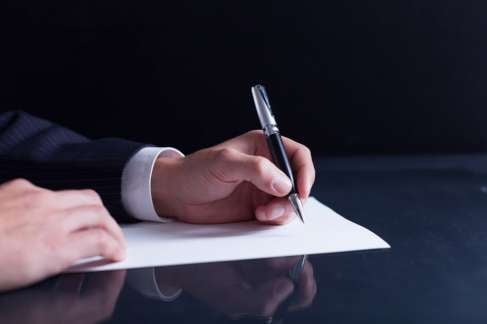Contact Myerson Solicitors
Complete the form below, or alternatively, you can call Myerson Solicitors on:
If you are drafting a will by yourself or are having one drafted by a legal professional, it is crucial to make sure that the will is both signed and witnessed correctly for it to be legally valid.
The governing law in England and Wales on the execution of wills is s.9 Wills Act 1837 (as amended).
This provision outlines that no will shall be valid unless:
Each witness must either:
Any will that is made on or after 31st January 2020 and on or before 31st January 2024 can obtain the ‘presence’ of a witness through videoconference or other visual transmissions.

The case of Payne v Payne [2018] highlighted the importance of witnesses and their role in creating a valid will.
The deceased, John Payne, had two wills, or purported wills. The first was produced in 1998, which left the entirety of John’s estate to his second wife, and the latter was produced in April 2012, which appointed John’s son, from his first marriage, and grandson as executors of the will, leaving John’s son the entirety of the estate.
There were issues with both wills:
The first will, despite having the names, addresses and occupations of the witnesses, had not been signed by the witnesses.
These issues caused both wills to be invalid as they did not comply with the s.9 requirements.
However, on the appeal of this decision, the earlier will was validated due to the will not having space for witnesses to provide their signatures, and by adding their personal details to the will, there was the intention of attesting to it.
This case not only clarifies the practical points surrounding the witnessing of a will, but also highlights the importance of using reliable witnesses in a will and having your will drafted by a legal professional to ensure that errors do not arise.
If you need assistance with your wills and estate planning or have concerns about the execution of a will, please contact our Wills, Trusts and Probate Solicitors below.
Complete the form below, or alternatively, you can call Myerson Solicitors on: